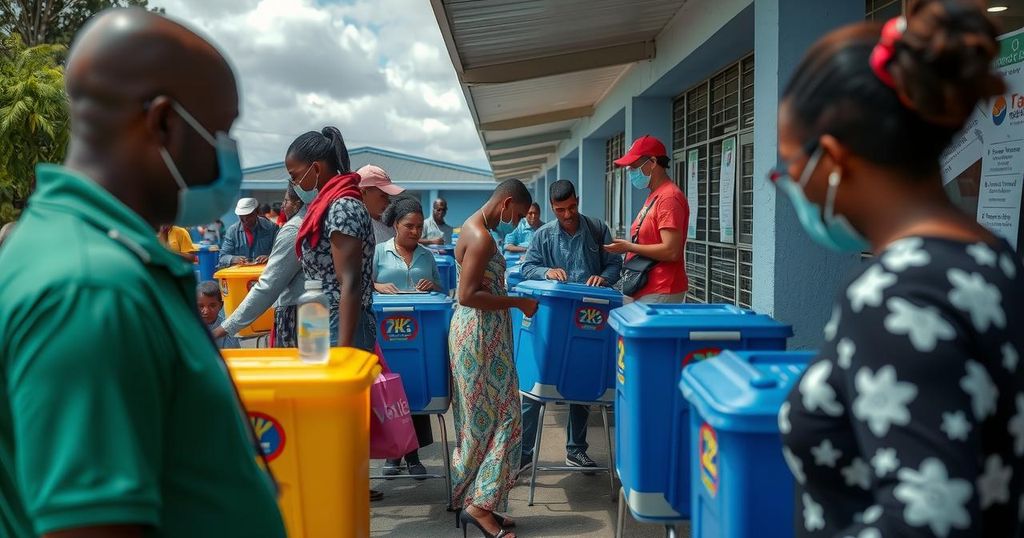Mauritius faces elections under the cloud of a wire-tapping scandal affecting civil rights. Prime Minister Jugnauth seeks re-election amid criticism of increased corruption and democratic decline. New political challenges arise, alongside a successful resolution over the Chagos Islands sovereignty dispute.
Mauritius is poised to conduct its legislative elections on Sunday, amidst significant controversy stemming from a wire-tapping scandal that has engulfed the nation. The revelations have sparked concerns regarding the integrity of civil liberties in the country, known for its stability and economic growth since gaining independence in 1968. Prime Minister Pravind Jugnauth, aiming for re-election, has faced considerable challenges following the emergence of leaked recordings of various political figures and journalists. In response, authorities attempted to impose a social media ban, which was quickly revoked after public backlash. Notably, these elections coincide with the recent resolution of a long-standing sovereignty dispute over the Chagos Islands, gifted back to Mauritius by Britain. As over one million voters prepare to cast their ballots in the twelfth parliamentary election, experts express grave concerns over the electoral fairness and democratic integrity of the process. Roukaya Kasenally, a democracy researcher, has criticized the decline in institutional checks and balances that has allowed corruption to thrive, heightened discrimination, and the harassment of opposition parties. The political landscape features long-standing leaders such as Jugnauth, whose party dominates, alongside his challenger Navin Ramgoolam of the Labour Party. Additionally, a new political faction, the Linion Reform alliance, is challenging the establishment with calls for honesty and transparency, particularly in light of the recent scandals. While the government touts the Chagos agreement as a diplomatic success, the political tumult illustrates the pressing need for reform in a country that was once viewed as a beacon of democratic achievement in Africa.
Mauritius has been celebrated as one of Africa’s democratic success stories, maintaining relative political stability and economic prosperity since independence. However, recent developments, including the wire-tapping scandal, have prompted fears of democracy backsliding. The nation now faces challenges related to governance, with critics highlighting issues such as corruption, the marginalization of specific demographics, and ineffective democratic institutions. The historical context of leadership being largely confined to a few families adds to the urgency for political reform.
In summary, the upcoming elections in Mauritius are overshadowed by a wire-tapping scandal that has heightened concerns about democratic erosion and civil rights. As Prime Minister Jugnauth seeks re-election, the emergence of alternative political movements reflects a growing demand for accountability and reform. While the recent resolution concerning the Chagos Islands offers some cause for optimism, significant challenges remain in securing the democratic ideals that the nation once embodied.
Original Source: www.seychellesnewsagency.com






